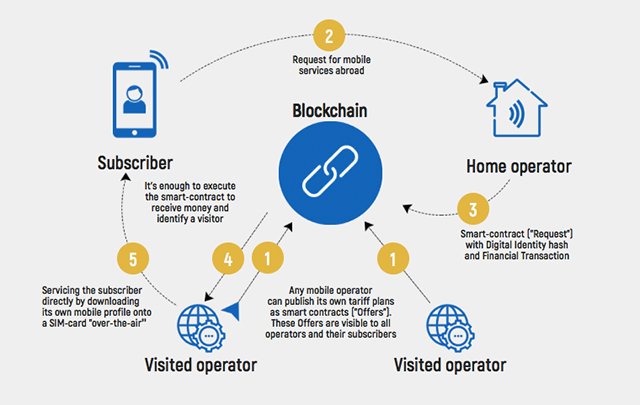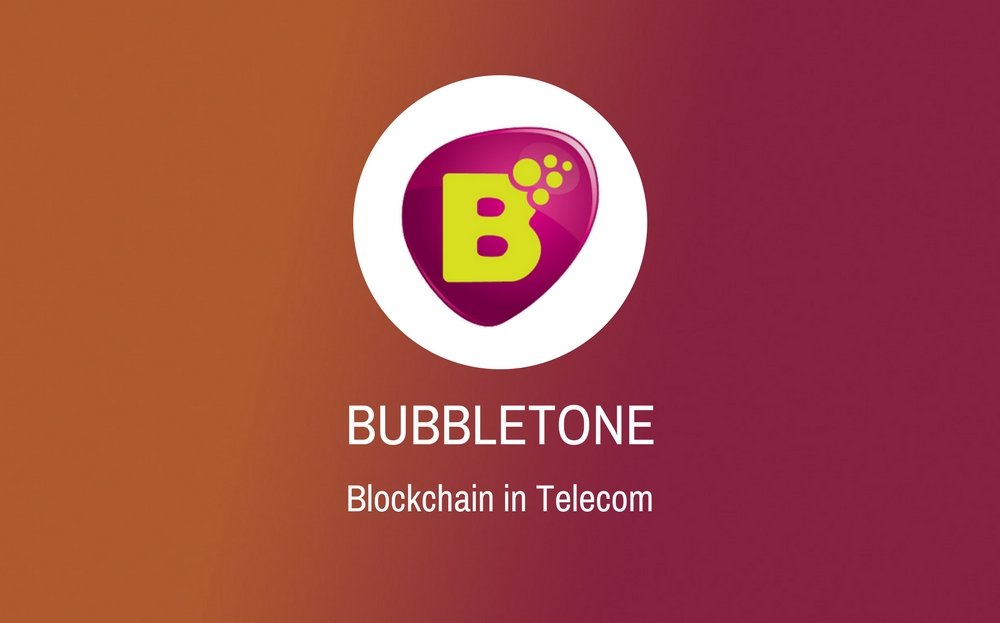BubbleTone Founder Yury Morozov Plans to Change the Telecom World One Blockchain at a Time
We sat down for this interview with Yury Morozov, the founder and CEO of BubbleTone, the first blockchain for the telecom industry. Mr. Morozov has over 20 years’ experience in the telecommunications sector with a string of successful businesses under his belt. For 16 years he has been Chairman of the Board of CountryCom. He recently founded BubbleTone with the intention of revolutionizing the mobile roaming telecom landscape.
Bitcoinist: Can you give us a quick overview of what BubbleTone is?
YM: BubbleTone is building the first decentralized, global telecom blockchain system that allows mobile network users and providers to interact securely and directly. The core idea of the project is to develop a global telecommunication platform where users will be able to purchase service packages using their existing SIM card, wherever they are in the world. Our goal is to eliminate international telecom roaming, which is inefficient and costly for both the users and the providers.

Bitcoinist: The ability to retain your SIM card and eliminate roaming fees certainly seems an attractive idea. How does your system work to ensure that happens smoothly?
YM: Our platform is being developed to make certain the experience is seamless for customers. They simply need to download and register the app, which can easily verify the user’s digital identity with their home operator’s database through standard, secure industry procedures. The person can then select the voice and data plan they need from a provider in their travel destination country, and purchase the contract with tokens, cryptocurrencies, or fiat currencies. Once a user pays for the service, a blockchain-based smart contract is generated. The foreign provider’s mobile profile will be transferred “over the air” in the form of cryptokeys to the user’s SIM-card, allowing them to call and use the internet directly through the local operator when abroad. This means users can access the fastest LTE quality speeds and avoid the “looped slow internet” because they are working directly through the local network.
Bitcoinist: I can see why travelers would want to buy local service “over the air”, but are these types of transactions actually secure for users?
YM: Our technology ensures that user data is never transferred anywhere because it can be validated on the blockchain by foreign mobile network operators in the user’s destination country. The smart contract also guarantees that the fee the provider sets will only be debited after the contract is completed, thus protecting the user.
Bitcoinist: It sounds like the platform solves a lot of the issues facing roaming customers. But what aspects of BubbleTone do you think will be attractive to potential service providers?
YM: Our platform essentially eliminates the barrier to providers’ entry into the market. Operators large and small can easily join our platform, in any market. Even smaller players have an opportunity to increase their subscriber base and get a new channel of revenue through the ecosystem. Our potential telecommunication partners can use our Graphene-based platform for free, and the source code is already available on GitHub. After creating an account on the BubbleTone platform, mobile operators can use the provided smart contract templates to quickly post their offers on the blockchain for all app users to see. That means providers can “pull” identified users securely onto their network via a mutually agreed upon and enforceable smart contract. The advent of blockchain-based smart contracts will also eliminate the issue of non-payment for services rendered, which is a huge problem for the industry.
Bitcoinist: How do you think blockchain technology will transform the telecom industry?
YM: It’s going to turn the industry on its head. On an infrastructure level, international mobile roaming is inefficient and outdated. It’s cumbersome and expensive for operators to set up and implement, and more importantly, it’s prohibitively costly for users—only about 7% of the world’s population can afford the roaming fees charged by their home operators. BubbleTone is a global project, with none of these regional restrictions whatsoever.
Bitcoinist: You sound like someone who wants to change the world. Can you speak a bit more about your company’s objectives on this front?
YM: We want to democratize the telecom industry globally, and we believe we will achieve that by making space for small- and medium-sized operators. Developing countries have been hit the hardest by what I call the “roaming divide.” Their local operators are charged higher rates by the world’s major telecom players because these markets are not seen as a reliable source of profit. As a medium-sized operator, we know these complaints all too well, and we wanted to create a platform that would include the smaller guys. With the blockchain platform that BubbleTone is developing, mobile operators and end users will connect directly at local prices during travel. Operators can expand their subscriber base with no extra investment, while users will enjoy high-quality mobile services at great local rates.

Bitcoinist: What other services could BubbleTone potentially offer?
YM: We envision a wider use of blockchain in telecom. For instance, to ensure secure and convenient authentication on the BubbleTone blockchain, we introduce pioneering solutions for digital ID management. Virtually any online value-added service, for example, digital music services or cloud storage, can be sold on BubbleTone blockchain by service providers to mobile subscribers anywhere in the world.
Bitcoinist: You are currently entering the final stages of your ICO, what comes next for the company?
YM: We have a fairly involved update of the BubbleTone messenger in the works, which we will soon be connecting to our blockchain platform. We are also in the process of incorporating user voting tools in it. We will be showcasing the app integration with the blockchain during the Mobile World Congress in Barcelona in late February 2018.
Bitcoinist: You chose to partner with ICOBox to help guide you through the launch of your Universal Mobile Token (UMT) ICO. What has that experience been like?
YM: ICOBox’s SaaS solutions have made the preparations for our ICO much quicker and easier. We feel that they have brought vital technical, legal, and marketing expertise to the project.
Images courtesy of BubbleTone
The post BubbleTone Founder Yury Morozov Plans to Change the Telecom World One Blockchain at a Time appeared first on Bitcoinist.com.